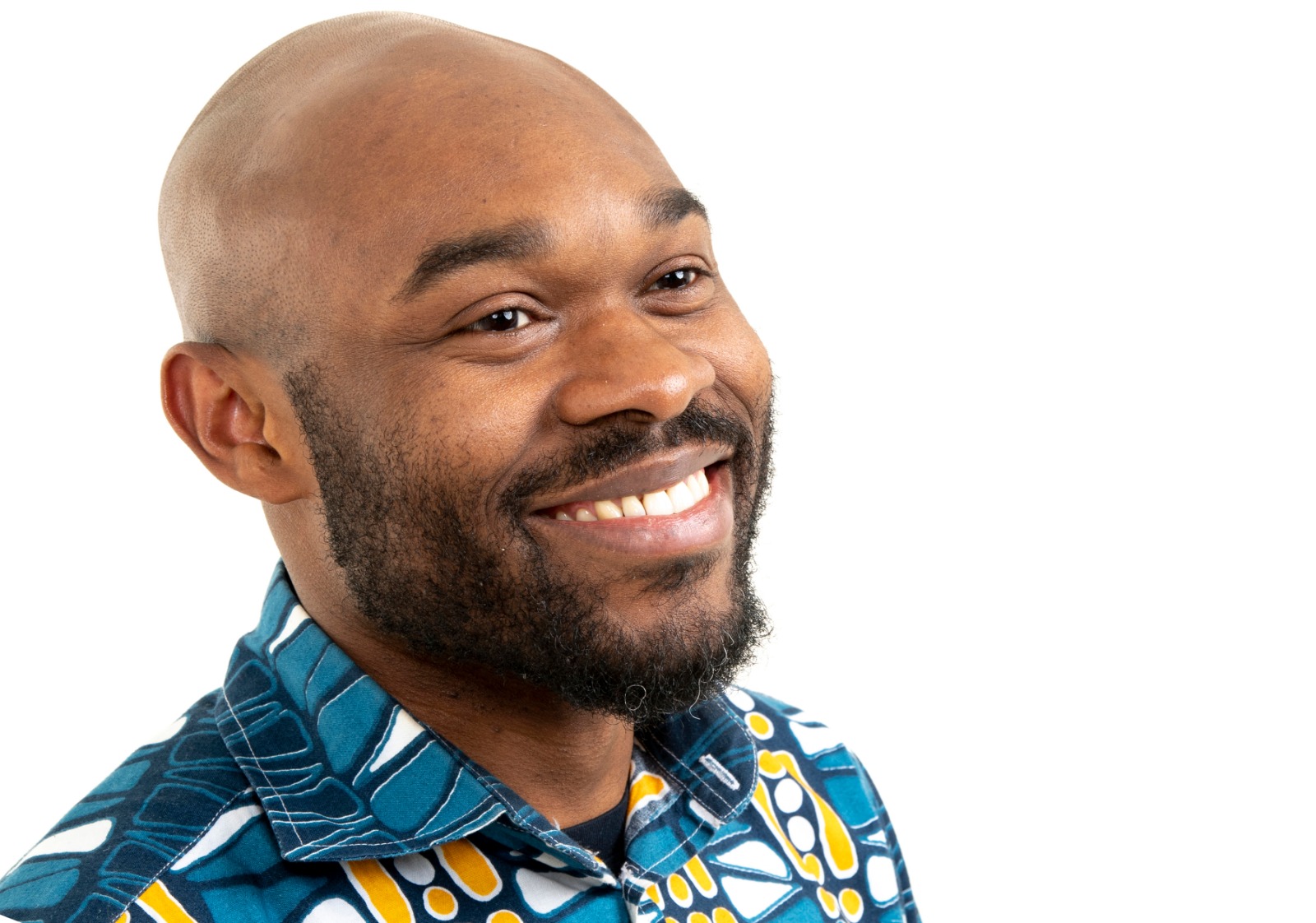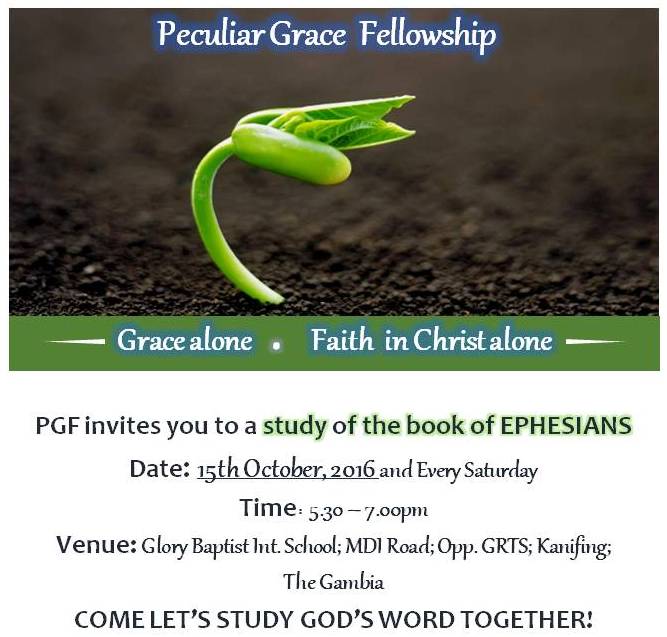
In two previous articles, we examined a few of the claims of the ‘New Creature’ theology, which falls under the bigger umbrella of the ‘Word of Faith’ movement. First, that God created humans as gods. The assertion is that being made in God’s image means we share His divine nature. Those who are born again are a completely ‘new species’ even, they assert, with extraordinary features such as the ability to create our ‘own world’ and immunity to sickness. We examined this claim in light of the Scriptural teaching and rejected this false claim. Next, this theology asserts that being a child of God entitles us to health and wealth—stemming from an erroneous understanding of the biblical doctrines of regeneration and adoption.
In this article, I would like to revisit the origins of this false doctrine and show that it is an old heretical claim wearing a different cloak. One that was dealt with and rejected by historic Christianity.
Tracing the origins of this false doctrine
Essek William Kenyon is considered the ‘high priest’ of this movement. Most proponents of the ‘we are gods’ theology hold him as the one who ‘unlocked the revelation’ that we can live above sickness as a class of superhuman beings. Kenyon studied Phineas Parkhurst Quimby, an anti-Bible mesmerist who taught that one could cure illness by the right kind of thinking. Mary Baker Eddy, the founder of Christian Science, was a patient of Quimby. Kenneth E. Hagin copiously plagiarised E. W. Kenyon and popularised many of the things Kenyon had written before him.
Contemporary students of Hagin, such as Kenneth Copeland, Creflo Dollar, Joyce Meyer, Frederick K. Price, Joel Osteen, Morris Cerrulo and many others, have continued to spread these false teachings. In our sub-region, Pastor Chris Oyakhilome is one of the most vocal proponents of this teaching. Many young preachers who have bought into this false teaching look to him as their mentor. But there are many others like Oyakhilome. I do not intend to list every teacher who peddles this false doctrine here. You can identify them for yourself by carefully examining the gospel content of the messages they preach, using the lens of holy Scripture.
A lofty view of man at the expense of God
The glaring problem with the ‘we are gods’ theology is its low view of God and the lofty self-aggrandisement of humanity at God’s expense. Listen to depictions of this from some of the adherents:
“The believer is as much an incarnation of God as Jesus Christ… the church hasn’t realized yet that they are Christ. That’s who they are. They are Christ.” (Kenneth E. Hagin).
“Man… was created on terms of equality with God, and he could stand in God’s presence without any consciousness of inferiority… He made us the same class of being that He is Himself.” (ibid).
“If cattle has another cattle, they call it cattle-kind. What’s God supposed to call [us]?” (Joyce Meyer).
“God came from heaven, became a man, made man into little gods, went back to heaven as a man.” (Benny Hinn).
“I am a little god. I have His name. I am one with Him. I’m in covenant relationship. I am a little god. Critics be gone!” (Paul Franklin Crouch).
“You are gods because you came from God, and you are gods.” (Creflo Dollar).
“When I read in the Bible where He says, “I AM,” I just smile and say, yes, I Am too.” (Kenneth Copeland).
“You don’t have a god in you. You are one.” (ibid).
“You have the same creative faith and ability on the inside of you that God used when He created the heavens and the earth.” (ibid).
“Until we comprehend that we are little gods and we begin to act like little gods, we cannot manifest the Kingdom of God.” (Earl Paulk).
“The whole purpose of God was to reproduce Himself. … you’re not looking at Morris Cerullo, you’re looking at God, you’re looking at Jesus.” (Morris Cerullo).
“And therefore you are gods; you have been purchased by the blood of Jesus.” (Rory Alec).
“God said, Let us make man in our image after our likeness. The word likeness in the original Hebrew means an exact duplication in kind. Adam was an exact duplication of God’s kind!” (Charles Capps).
“I live above the elements of this world. I live above sickness, disease, and death. I’m immune to anything that ravages the lives of men; I belong to God’s class of divine beings. I am a partaker of the divine nature; my body is sustained by a force that the ordinary man cannot perceive. My kidneys, lungs, heart, all tissues and every organ in my body function properly.” (Chris Oyakhilome).
None of these claims are true, of course. You are not a god, not even close. Neither are you above sickness, disease, or death. Not on this side of eternity. Everything on earth grows old, dies and decays. God Himself caused it to be so after the fall (Rom. 8:18-23).
An old heresy repurposed in a new cloak
The ‘we are gods’ theology smacks of the ancient heresy called the Monophysite heresy. The term Monophysite has its roots in Greek, monophysis, meaning ‘one nature or substance’. Eutyches propagated this position in the fifth century. He argued that Jesus had one nature, comprising a mixture of divine and human attributes. In other words, Jesus’ nature could be viewed as a humanised divine nature or as a deified human nature. This was rejected by a council of the church at Chalcedon in 451. The council was at pains to prove that any mixture of the two natures of Christ that would result in a deification of his human nature or a humanisation of his divine nature was a distortion of the Biblical teaching. “Jesus is truly man and truly God”, the council of Chalcedon affirmed, yet his two natures were not mixed or confused.
Jesus was truly God and truly man; one person, two natures. We see this clearly articulated in Scripture. As a man, he got tired, hungry, slept, was bruised, sweated, didn’t know all things and died. As God, He, knew all things, could perceive the thoughts of others before they spoke them, could raise the dead, walk on water, give sight to blind, create new life by bringing from the dead and restoring a severed ear, etc. To be sure, Jesus’ divine nature could communicate information to his human nature, but it did not communicate attributes. Otherwise, Jesus as a man wouldn’t have needed to rest, eat or sleep (God does none of these). The Chalcedonian council stated, “Each nature retains its own attributes.” In other words, the divine nature retains divinity in every respect, while the human nature, similarly, retains its humanity in every respect.
If not even Christ, then why us?
If even our Lord’s human nature was not subsumed by his divine nature and become deified, where do the proponents of the ‘we are gods’ theology derive their so-called super-human nature? They lay claim to something that even the incarnate Christ did not possess. This is something to choke on.
To be fair, the ‘New Creature’ doctrine followers seek to be like Christ in every sense. If we are like our Lord, then we can do what he did and live like He did. They quote 1 John 4:17, which says, “As he is, so are we in this world.” At first glance, this seems like a very pious and noble thing for every Christian to do – to aspire to be like our Lord. However, careful consideration will reveal the grave errors in this line of thinking.
As we have established above, Christ had two distinct natures. We don’t. He was both God and man at one and the same time. We are not. We are human, and nowhere does the Bible teach that when we become born again, we somehow cease to be human and become divine or super-human.
Idolatry camouflaged as hyper-spiritual talk
This claim to deity by the proponents of the ‘we are gods’ theology is idolatry, plain and simple. God has always been a jealous God. He jealously guards his glory. Countless times in the Bible He declares, “I do not share my glory”, “I alone am God”, “There is none beside Me” and “Have no other gods but me” (See Isa. 42:8; Isa. 48:11; Ex. 20:2-3 & Deut. 5:7; Ex 34:14; Isa. 46:9; Isa. 45:21; Deut. 32:39; Deut 4:39; 1Kings 8:60; 1Sam. 2:2; 2 Sam. 7:22; and 1Chron. 17:20).
‘We are gods’ proponents know these Scriptures, yet in their case, they are willing to grant this one exception – there is no other God besides the God they serve but them. Does God contradict Himself? Would he break His own Word to make gods out of those He has saved? I do not think so. The claim to deity is quite plainly inconsistent with the entire Biblical teaching.
As He is, so are we in the world
Let us examine the verse misconstrued by Word of Faith preachers to mean we are gods. As with all scriptural interpretation, context determines meaning. Let’s look at the full verse and situate it in its proper context:
“By this is love perfected with us, so that we may have confidence for the day of judgement, because as he is is so also are we in this world.”
“By this”. By what? Clearly, this is a continuation of the previous verse, where John talks of believers abiding in God and God abiding in them. As a result of God’s love for those who have placed saving trust in Jesus, they can be confident (assured) that they will be spared condemnation in the coming judgement (cf. Romans 8:1). In that same vein of God’s love, John goes on to say that as He is, so are we in the world, meaning, as Jesus was and is loving, so are we His followers in this world. We are to walk in love the same way Christ did, and if we did, we would not attract God’s displeasure (or judgment). Hence, the next verse says, “There is no fear in love, but perfect love casts out fear”. If we walk in love as Jesus’ followers, we are not afraid of His condemnation. “For fear has to do with punishment, and whoever fears has not been perfected in love. We love because He first loved us.” (John 4:18-19) Any suggestion of being deified because God abides in us is an alien concept foisted on this verse. John does not convey any such meaning.
Partakers of the divine nature
“By which he has granted to us his precious and very great promises, so that through them you may become partakers of the divine nature, having escaped from the corruption that is in the world because of sinful desire.” (1 Peter 1:4)
Here is another verse that proponents of ‘we are gods’ appeal to. Again, a careful examination of the verse reveals that any suggestion of deity being granted to the believer is a meaning we read into the verse that the author simply did not supply.
‘Partakers of the divine nature.’ Bold as these words are, they simply state what the rest of the New Testament teaches, i.e., Christians abide in God, and God abides in them. As Jesus illustrates in John 15, He dwells in us, and we in Him, as the branches in the vine and members of His body. His life flows in us. This is what is taught by the doctrine of regeneration, whereby the ‘life of God’ is implanted in the believer, resulting in a change in his disposition. Whereas he formerly hated God, now he loves Him and desires to obey His commands. His commandments are no longer burdensome to the regenerated believer because of this new disposition they receive at New Birth (1 John 5:3).
‘Partakers of the divine nature’ simply means we now have a new heart, a heart of flesh that God Himself creates (Jer. 31:31-34 & Ezek. 36: 21-27); one that has God’s laws written on it, and is no longer ruled by the “passions of our flesh, carrying out the desires of the bodyand the mind” nor follows “the course of this world, following the prince of the power of the air, the spirit that is now at work in the sons of disobedience.” (Eph. 2:1-2). This is what Paul meant in 2 Cor. 5:17 when he said that those in Christ are new creatures.
‘We are gods’ false teachers pit Scripture against Scripture, forgetting that the Scriptural revelation is one whole message, and the meaning derived from one part of Scripture can never contradict what is taught in the rest of Scripture.
Grossly inconsistent with the NT
Perhaps the most audacious claim of this heretical teaching is that believers in the New Testament did not exhibit attributes of deity nor lay claim to deity because they had not yet grasped the reality of who they were as ‘super beings’. Some go as far as to say that the apostles were wrong, and the early church did not ‘catch’ this revelation till now! Pastor Chris Oyakhilome is on record to have said that when the people in Lystra (Acts 14:15) wanted to make sacrifices to Paul and Barnabas, and they refused, rejecting any homage with the claims, ‘We too are only human, like you’, they were wrong.
This is how they explain away the fact that believers in the New Testament could fall ill (2 Tim 4:20), even to the point of death (Phil. 2:2), or suffer chronic symptoms (1 Tim. 5:23). These were close associates of Paul – the same Paul who raised the dead and from whom aprons and handkerchiefs that had touched his skin could heal the sick (Acts 19:12). Paul himself said that it was because of a bodily ailment that he first preached to the Galatians (Gal. 4:13). If even an apostle like Paul could fall ill, and his close associates weren’t spared bodily ailments, isn’t that enough proof that having Christ in you does not offer immunity to sickness? ‘We are gods’ teachers will have us believe that Paul hadn’t yet ‘caught the revelation’ that he could live above sickness. We have no words to say in response to this level of pride.
Why should we care?
Why should we be concerned about the flagrant distortion of Scripture? First, if we promise what God has not, we set people up for disappointment. When the unrealistic expectations of this cancerous theology are not met, believers become disillusioned, and their trust in God and the integrity of His teachings are undermined.
Next, this kind of teaching hinders spiritual growth. Faithful Scriptural teaching, rooted in an exalted view of God, his glory and His holiness, is pivotal for spiritual growth and maturity. Misinterpretations misguide believers, hampering their spiritual growth and leading them to adopt unscriptural beliefs and practices.
Finally, such false teachings compromise outreach. The efficacy of the Christian mission in the world is grounded in the authenticity and accuracy with which Scripture is presented. Distortions detract from the church’s credibility, obscuring the gospel’s true essence and beauty for others.


